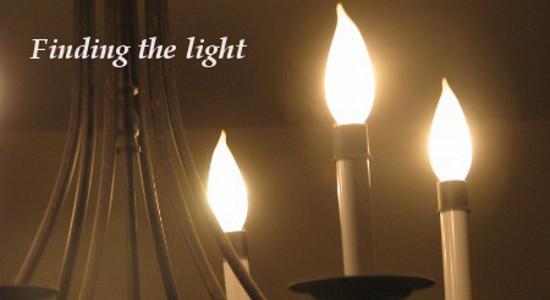Drug Addiction Recovery Program
Drug Addiction Recovery Program

|
Get Help Now! 800.815.3910 Available 24/7 The road to recovery starts here! Trusted, confidential help available 24/7. Speak with an addiction treatment specialist anytime. Please call us now at 800-815-3910! |
Drug Rehabilitation 12-Step — What is it like?
Imagine yourself in the kitchen to make yourself a piece of toast. You have everything you need. But when you push down the lever to lower the bread into the toaster, nothing happens. You have done every correctly, so you double check — bread, butter, jam, knife, plate – and you see that everything is in place. But there is one item missing. You have no power to make the toaster work. After a brief “ah ha” moment you plug the toaster in and shortly thereafter enjoy your toast.
The Drug Addiction Recovery Program 12-Step process is similar to making toast in one respect, you have to plug into a power source, and when you do, everything can start to work. We believe that people are not meant to be alone, to handle the everyday challenges of life. It follows that people are certainly not meant to be alone during the very hard times. Whatever the power source, it is vital to the process.
Addiction Drug Addiction Recovery Program 12-Step History
To appreciate the roots of the addiction 12-Step program we need to spend a moment to look into the personal history of Alcoholics Anonymous founder Bill Wilson.
Click here for History of Drug Addiction Recovery Program 12-Step program
Please consider using the addiction 12-step program
There are an abundance of web sites and books written about the addiction programs, and we’ll share a few of them with you to give you a broader base of understanding and point you to a few excellence resources. The 12-Step program is steeped in tradition and firmly supported by spiritual truth, give us all a model of humanity that points us to a better life, a stronger relationship with our neighbors, and an eternal loving relationship with the one who made us.
As you look through the Drug Addiction Recovery Program 12-Step program, think of them as a process. Like a path you walk on to go from A to Z, only you must take all of the steps and go through each in order, otherwise the path does not lead to your final destination. You go at your own pace and move forward as you see fit. Along the way, remember that these steps were written by people just like you, who needed help and had the courage to accept the help. Regardless of your addiction, 12-Step offers improvement for the human condition.Enjoy your reading. Maybe you like Rev. Buchman and Bill Wilson will go through a spiritual experience of your own. If you do, please share it with us.
Addiction Recovery:
What happens when you call a treatment center about a Addiction Recovery?
Maybe you’re asking yourself if an intervention will make matters worse. NOT acting will make matters worse.
Once
you have made the decision to make the call, you probably want to know
what to expect. Each alcohol treatment center has its own procedures, so
understand that there is likely to be some differences between them.
The
people at the alcohol treatment center will ask you questions about the
situation with your loved one and will do a clinical assessment of what
needs to be done. Is an intervention necessary or not. If intervention
is needed, you will be referred to an interventionist, who will
determine exactly what needs to be done and discuss that plan with you.
Arrangements will be made for in-house treatment and all of the
insurance details, etc. will be worked out before the intervention
occurs. If travel is involved, those arrangements will be made as well.
What happens during an Addiction Recovery?
The
intervention needs to be organized. The interventionist will work with
you to plan the intervention. You will likely meet with this person
several times, either in person or over the phone. You will have to
assemble a group of family, friends, co-workers and perhaps clergy to
coordinate your participation in the intervention.
Once the
participants are selected, the interventionist is likely to call a
pre-intervention meeting with everybody. During this meeting you will
learn about the disease and you’ll be encouraged to document the impact
it has had on each member of the group. The interventionist will discuss
the plan with the group and tell each participant what is needed from
them.
Each person will prepare a written statement for the
intervention and each statement will be rehearsed at this meeting. It’s
important to be a team, that each member of the group understands the
necessity to hold firm their commitment to helping the loved one.
The
group will assemble at a pre-determined location for the intervention.
The interventionist will direct the meeting, which can take an hour or
so to get through the agenda. Each member of the group will share their
statement. These statements are non-judgmental, loving and need to
communicate the person’s care for the addict.
During and between
statements, understand that the addict may react poorly toward your
compassionate outreach. Remember, there is nothing wrong with them and
it’s your problem. They may argue. They may deny anything you say.
Expect the worst.
The addict’s circumstances may be dire, but
there is nothing wrong with them, so be patient and hold your ground. If
there is going to be fireworks, the interventionist is the one who can
handle the conflict. You are there to show your love and concern. You
are there to share how the addiction is hurting you.
If the loved
one is willing to go into treatment, and all of the arrangements having
been made, they can immediately be taken to the center. If the center is
local they can be driven, or if a plane flight is necessary, they can
be taken to the airport and put on a flight. They will be met at the
destination airport and taken to the treatment center.
The
interventionist will report to the treatment team all of the findings
from the intervention, from the assessment to the group meeting. The
professionals at the center will have an excellent head-start to help
your loved one get on the road to recovery.
The addict is not the
only one who will receive help, as most centers will offer you
assistance as well. You were the one to “blow the whistle” so to speak
and do not be hesitant to allow their support and counsel. The addict
needs treatment, but so do those who live with the addict and the family
members who have shared in the suffering.
Support groups like
Al-Anon are excellent for husbands, wives and family members. The
emotional toll the addiction takes can be enormous and people need the
help and support of others who have walked through the tunnel of living
with the addict. Many churches have addiction support groups, which
bring an added spiritual/religious component to the spouses and family.
and Finally Remember:
“Ask and it will be given to you; seek and you will find; knock and the door will be opened to you. For everyone who asks receives; he who seeks finds; and to him who knocks, the door will be opened.”
– Matthew 7:7-8
Recent Articles
-
Denial of Addiction
Jun 24, 17 08:28 AM
Denial of Addiction is so common it’s almost trite to talk about it, but it can be over come if the people around the addict/alcoholic keep trying!
-
What is Klonopin?
Jun 22, 17 08:24 AM
I am not an addict but I am a student who needs help with this question: If Klonopin is being taken illegally, how can you tell if someone is addicted
-
My brother has been a drug addict since he was a teenager
Jun 21, 17 08:17 AM
My brother is a drug addict and is in hospital. He was in ICU for 9 days for an injury to his head. He needed 4 pints of blood and nearly died. The doctor
Follow on Twitter or Google+
